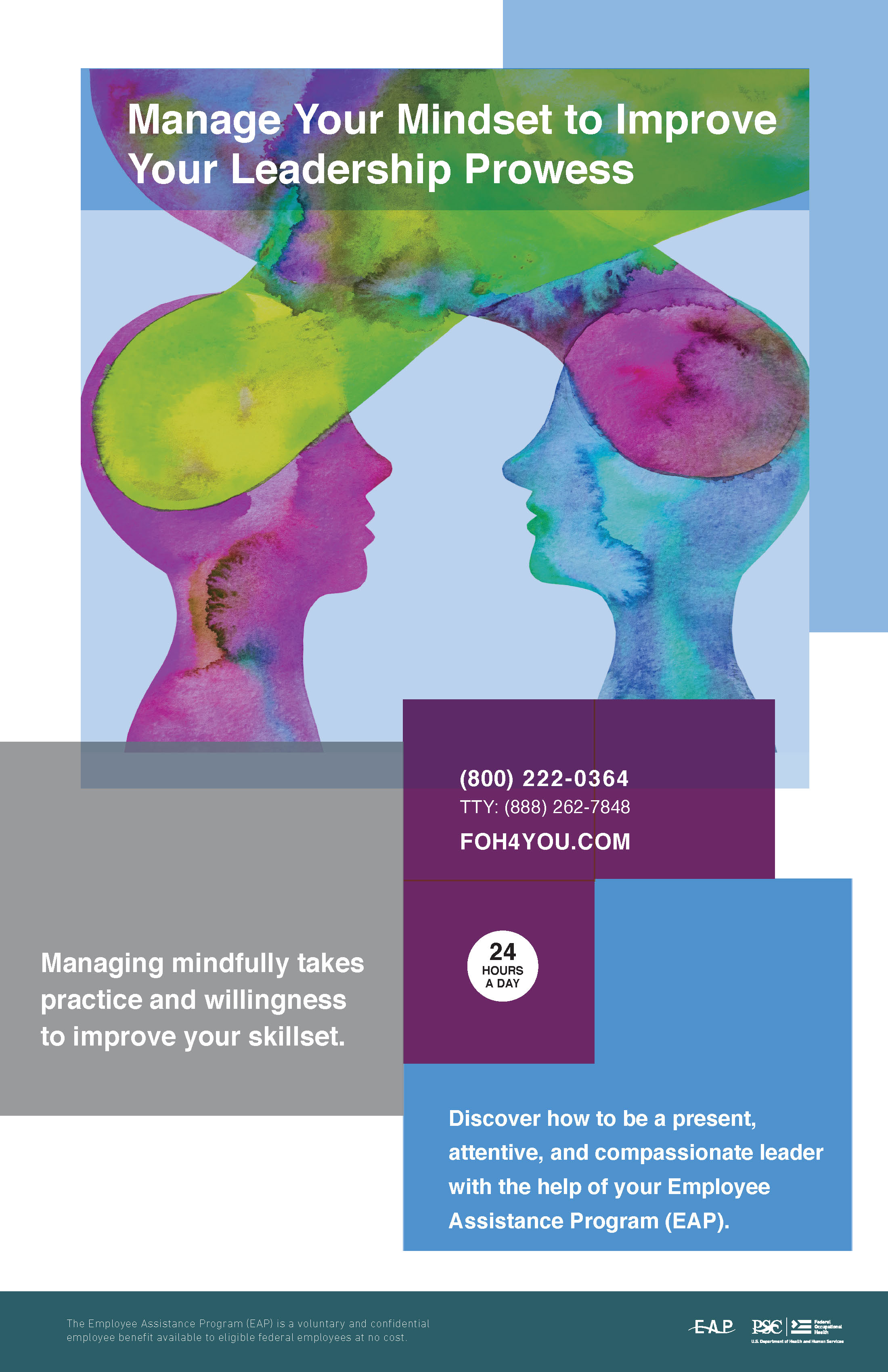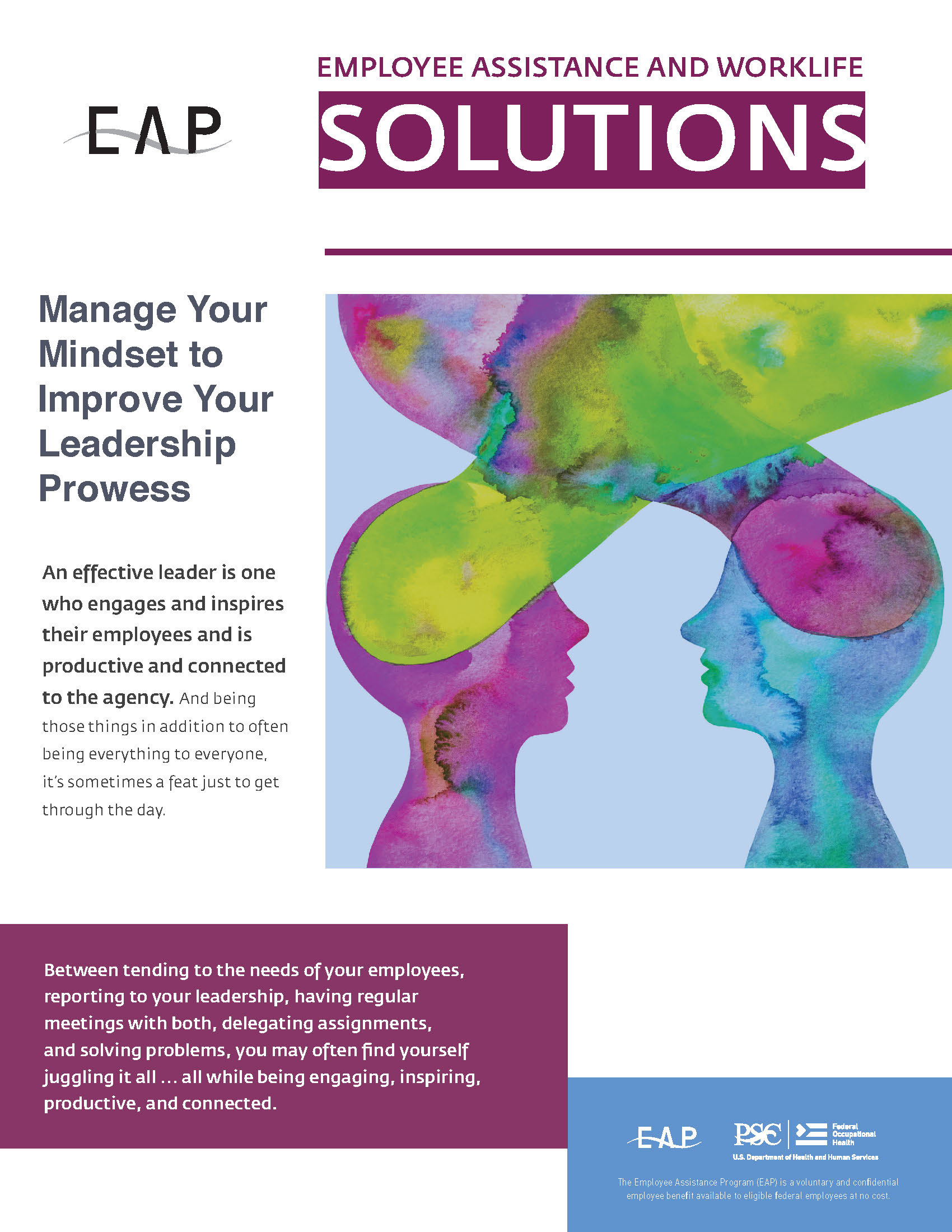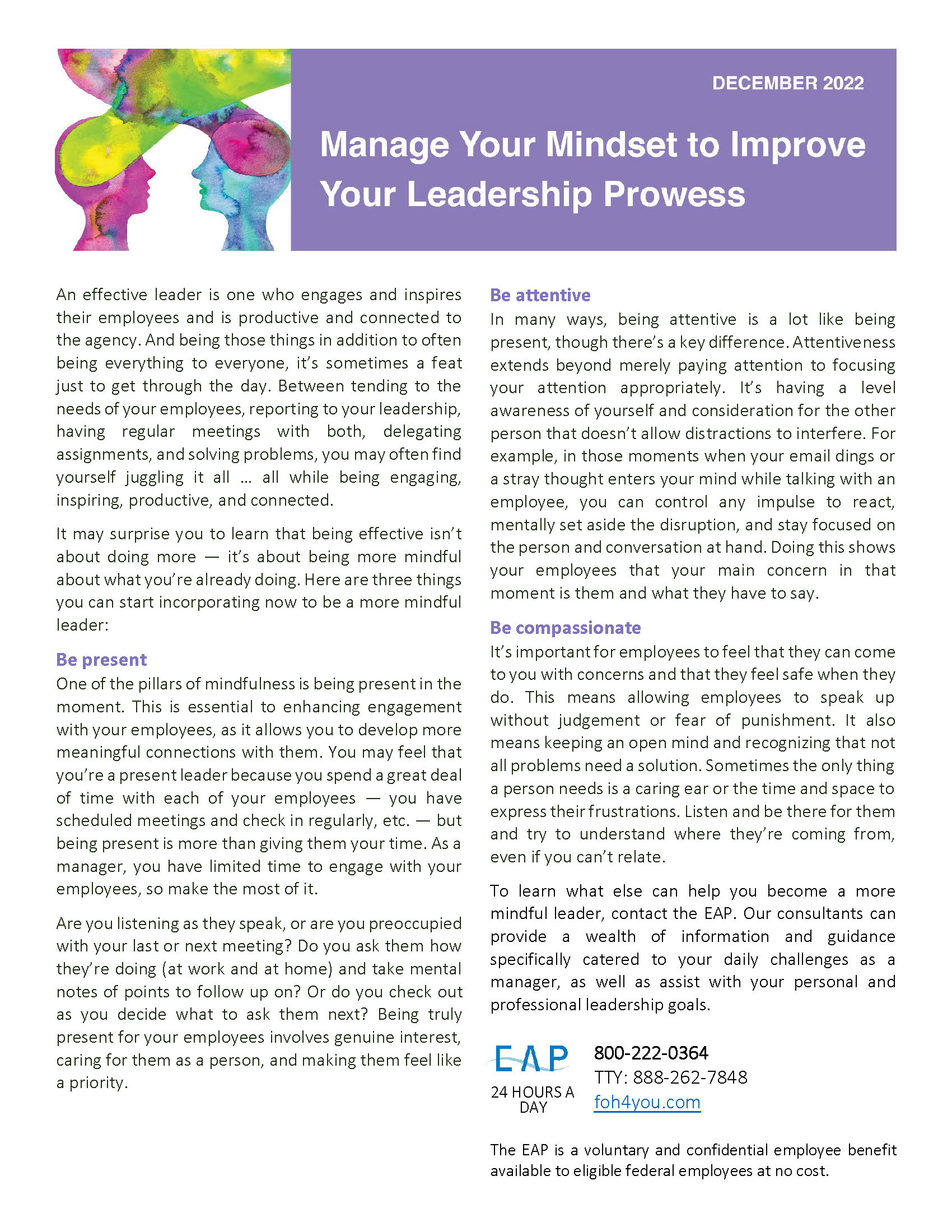
An effective leader is one who engages and inspires their employees and is productive and connected to the agency. But being a leader often means being everything to everyone, so it’s sometimes a feat just to get through the day, let alone be effective in the process.
Between tending to the needs of your employees, reporting to your leadership, having regular meetings with both, delegating assignments, and solving problems, you may often find yourself juggling it all … all while being engaging, inspiring, productive, and connected.
It may surprise you, though, to learn that being effective isn’t about doing more — it’s about being more mindful about what you’re already doing.
Here are three things you can start incorporating now to be a more mindful leader:
Be present
One of the pillars of mindfulness is being present in the moment. This is essential to enhancing engagement with your employees, as it allows you to develop more meaningful connections with them. You may feel that you’re a present leader because you spend a great deal of time with each of your employees — you have scheduled meetings and check in regularly, etc. — but being present is more than giving them your time. As a manager, you have limited time to engage with your employees, so make the most of it.
Are you listening as they speak, or are you preoccupied with your last or next meeting? Do you ask them how they’re doing (at work and at home) and take mental notes of points to follow up on? Or do you check out as you decide what to ask them next? Being truly present for your employees involves genuine interest, caring for them as a person, and making them feel like a priority.
Be attentive
In many ways, being attentive is a lot like being present, though there’s a key difference. Attentiveness extends beyond merely paying attention to focusing your attention appropriately. It’s having a level awareness of yourself and consideration for the other person that doesn’t allow distractions to interfere. For example, in those moments when your email dings or a stray thought enters your mind while talking with an employee, you can control any impulse to react, mentally set aside the disruption, and stay focused on the person and conversation at hand. Doing this shows your employees that your main concern in that moment is them and what they have to say.
Be compassionate
It’s important for employees to feel that they can come to you with concerns and that they feel safe when they do. This means allowing employees to speak up without judgement or fear of punishment. It also means keeping an open mind and recognizing that not all problems need a solution. Sometimes the only thing a person needs is a caring ear or the time and space to express their frustrations. Listen and be there for them and try to understand where they’re coming from, even if you can’t relate.
Download the Campaign
|
Poster |
PDF Newsletter |
Plain Text Newsletter |
|
To learn what else can help you become a more mindful leader, contact the EAP. Our consultants can provide a wealth of information and guidance specifically catered to your daily challenges as a manager, as well as assist with your personal and professional leadership goals. 24 HOURS A DAY
The EAP is a voluntary and confidential employee benefit available to eligible federal employees at no cost. |




